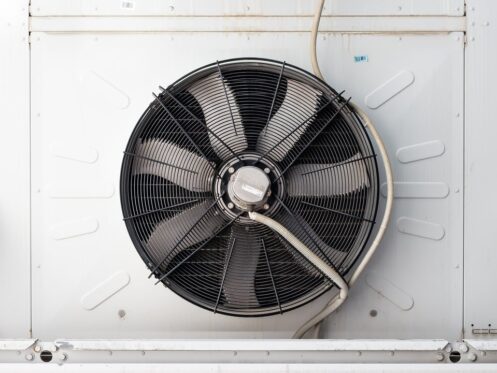Regular air filter replacement is essential for maintaining the efficiency and longevity of your HVAC system. Air filters play a crucial role in trapping dust, dirt, and other particles, preventing them from circulating through your home. Over time, these filters can become clogged and less effective, leading to a host of issues.
Understanding the Role of Air Filters in Your HVAC System
Air filters are vital components in your HVAC system. They capture dust, dirt, and other particles from the air before they can enter your home’s ventilation system. This helps to maintain good air quality inside your home and ensures that the HVAC system functions efficiently.
The primary role of an air filter is to protect the HVAC system itself. When air filters capture particles, they prevent these contaminants from settling on crucial components like the coils and fan motors. This protection helps the system to run smoothly, reduces the need for frequent heater repairs, and extends the system’s lifespan.
An effective air filter also improves the overall air circulation within your home. When the filter is clean, the HVAC system doesn’t have to work as hard to push air through the vents. This improved airflow leads to more consistent heating and cooling, ensuring that each room in your home maintains a comfortable temperature without putting unnecessary strain on the system.
Benefits of Regular Air Filter Replacement
Regular air filter replacement offers numerous benefits that enhance the performance and longevity of your HVAC system. One significant benefit is improved indoor air quality. Clean air filters capture more pollutants, allergens, and dust particles, ensuring that the air you breathe is healthier. This is particularly important for individuals with allergies or respiratory conditions, as poor air quality can exacerbate these issues.
Another key benefit is energy efficiency. When air filters are clean, the HVAC system can operate more efficiently. A clogged filter restricts airflow, making the system work harder to maintain the desired temperature. This extra effort increases energy consumption, leading to higher utility bills. Replacing the air filter regularly ensures that the system runs efficiently, reducing energy costs.
Lastly, regular air filter replacement helps to prevent damage to your HVAC system. A clogged filter can cause the system to overheat, leading to potential damage and more frequent furnace repairs. By keeping the filter clean, you reduce the risk of component wear and tear, extend the system’s life, and avoid costly repairs or replacements in the future.
Signs It’s Time to Replace Your Air Filter
Recognizing when to replace your air filter is crucial for maintaining your HVAC system’s efficiency. Here are some common signs that indicate it’s time for an air filter replacement:
- Visible Dirt and Dust: If you see a layer of dust and dirt on the filter, it’s likely clogged and needs to be replaced. A dirty filter can no longer capture new particles effectively.
- Increased Allergies or Respiratory Issues: If household members experience more allergies or respiratory problems, a dirty air filter might be the cause. A clean filter helps maintain better indoor air quality.
- Higher Energy Bills: A sudden increase in energy bills without a change in usage habits can indicate that the HVAC system is working harder due to a clogged filter.
- Uneven Heating or Cooling: If certain rooms are warmer or cooler than others, it could be due to restricted airflow from a blocked air filter. Replacing the filter helps restore balanced airflow.
- Frequent HVAC Repairs: If you’re calling for HVAC repairs more often, it might be due to a dirty filter causing the system to overheat or malfunction. Keeping the filter clean can prevent these issues.
Replacing your air filter when these signs appear ensures your HVAC system operates efficiently and maintains good indoor air quality.
How to Choose the Right Air Filter for Your HVAC System
Selecting the right air filter is essential for optimal HVAC performance. Here are key factors to consider:
- Filter Size: Ensure the replacement filter matches the size specifications of your HVAC system. Using an incorrect size can lead to poor filtration and system inefficiency.
- MERV Rating: The Minimum Efficiency Reporting Value (MERV) rating indicates a filter’s ability to capture particles. Higher MERV ratings capture smaller particles but can restrict airflow if too high for your system. Consult our professionals to determine the best MERV rating for your needs.
- Filter Material: Different materials offer various filtration levels. Fiberglass filters are cost-effective but less efficient, while pleated or HEPA filters provide superior filtration but at a higher cost.
- Manufacturer Recommendations: Always refer to the HVAC manufacturer’s guidelines when selecting a filter. Following these recommendations ensures compatibility and optimal performance.
- Special Requirements: Consider any specific needs, such as allergen control or pet dander, when choosing a filter. Some filters are designed to target specific contaminants, providing a customized solution for your household.
Choosing the right air filter helps maintain your HVAC system’s efficiency and enhances indoor air quality.
Conclusion
Regular air filter replacement is a simple yet vital task for maintaining your HVAC system. Understanding the role of air filters, recognizing the benefits of routine replacement, and identifying signs that it’s time for a new filter can keep your system running efficiently. Selecting the right filter also ensures that your system operates at peak performance, providing clean and healthy air for your home.
If you need assistance with air filter replacement in Goddard or any HVAC-related services, contact us at Midwest Mechanical. Our professionals are ready to help you maintain a comfortable and healthy home environment.
